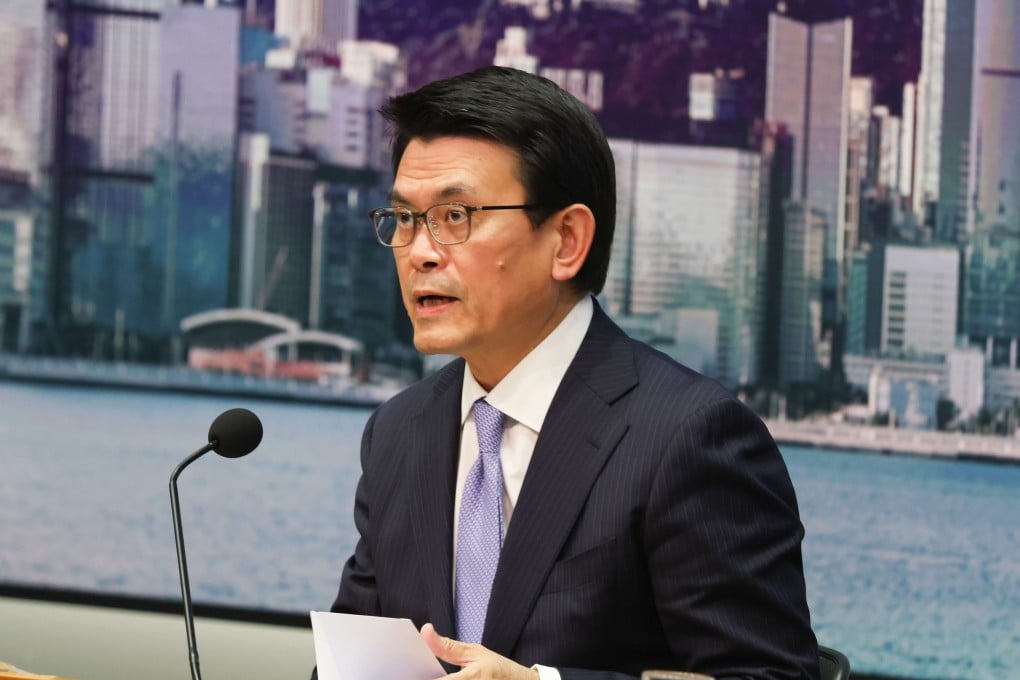Hong Kong to revive bill bolstering copyright law as minister warns satire, parodies must toe national security line
- Push to change existing legislation comes after government failed twice before
- High time city catches up with rest of world in updating its copyright regime, minister says

Hong Kong is resurrecting a bill expanding intellectual property protections that opposition lawmakers have blocked twice before, with officials saying it is high time the city catches up with the rest of the world in updating its copyright regime.
The government on Wednesday launched a three-month public consultation on the proposal to update the Copyright Ordinance, which is expected to be submitted to a newly elected Legislative Council in 2022.
Secretary for Commerce and Economic Development Edward Yau Tang-wah noted that three rounds of major consultations on strengthening copyright protections had been carried out since 2006, and previous efforts to pass the bill were met with filibustering by opposition lawmakers.
“It is most unfortunate that Hong Kong’s copyright regime is over a decade behind international developments,” he said. “We believe that it is high time to revive the copyright review exercise.”
Updating the copyright regime would help transform the city into a hub for intellectual property trading as outlined by the chief executive in her policy address and the central government in its latest five-year plan for the nation, Yau added.
The government’s proposal, based on the Copyright (Amendment) Bill 2014, is again offering exemptions to the education sector, libraries, museums and archives to use protected materials for the purposes of learning.
It also allows the use of protected content for the creation of parody, satire, caricature, pastiche, commenting on current events, and quotation of copyrighted work. It also permits the reproduction of audio recordings in different formats.
“We aim to strike a proper balance between the legitimate interests of copyright owners and users, and serve the best interests of Hong Kong,” Yau said.